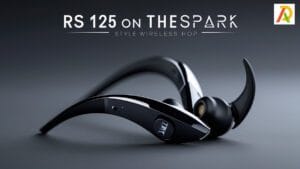How do HSA and FSAs Work for Medical Alert Systems?

Although you might not be familiar with how HSA and FSA accounts operate or what they can be used for, you may have heard of them. The usage of various financial instruments to pay for medical alert systems and other related expenses will be covered in this article.
The types of medical alert systems
There are three main types of medical alert systems: landline, mobile, and GPS.
Landline systems
These are the most basic and affordable types of system. They work by connecting to your home’s telephone line and summoning help when the emergency button is pressed. However, since they rely on a landline, they will not work if the power goes out or you leave your home.
Mobile systems
These are more expensive than landline systems but offer much more flexibility. They use a cellular connection instead of a landline, so they will still work even if the power goes out. They also usually come with a GPS feature, so you can be located even if you’re away from home.
GPS systems
These are the most expensive medical alert system, but they offer the most features. In addition to working without a landline or power, they also have a built-in GPS so that you can be located anywhere in the world.
How HSA and FSAs work with medical alert systems
With a Health Savings Account (HSA) or Flexible Spending Account (FSA), you can set aside tax-free dollars to cover qualified medical expenses, including the costs of a medical alert system. These accounts can be used to pay for the initial purchase of a system, as well as ongoing monthly monitoring fees.
HSAs and FSAs are both great ways to save money on medical expenses, but there are some key differences between the two accounts. With an HSA, you must be enrolled in a high-deductible health insurance plan to qualify. With an FSA, there is no such requirement. However, FSAs have a use-it-or-lose-it rule, meaning that any money you don’t spend by the end of the year is forfeited. HSAs have no such rule, so you can roll over your unused funds yearly.
Both HSAs and FSAs can be used to pay for medical alert systems, but be sure to check with your specific account provider to see if there are any restrictions on how the funds can be used.
The benefits of using HSA and FSA for medical alert systems
There are many benefits to using HSA and FSA for medical alert systems. First, they can help you save money on your monthly bills. Second, they can provide peace of mind in knowing that your loved ones are always safe and sound. And third, they can give you the ability to customize your system to best fit your needs.
How to choose the right medical alert system
When choosing a medical alert system, there are a few things you need to take into account. Do you want a system solely for medical emergencies or one that offers fall detection and GPS tracking? Will you always wear the alert device, or only when you leave the house? And finally, how do you want to be contacted in an emergency – by phone, text, or email?
Once you have answered these questions, you can start looking at specific systems. Some popular options include Life Alert, Philips Lifeline, and Bay Alarm Medical. Each system has strengths and weaknesses, so read reviews before making your final decision.
One important factor is whether the system offers HSA and FSA compatibility. If you have either of these accounts, you can use them to cover the costs of your medical alert system. However, not all systems are compatible with both HSA and FSA accounts. Be sure to check before making your purchase.
Conclusion
If you are considering a medical alert system, it is important to understand how HSA and FSA accounts can be used to pay for the system. HSA and FSA accounts are tax-advantaged accounts that can be used to cover qualified medical expenses, including medical alert systems. With an HSA account, you can use pre-tax dollars to pay for your medical alert system, and with an FSA account, you can use post-tax dollars to pay for your system. If you have an HSA or FSA account, check with your plan administrator to see if your plan covers medical alert systems.


